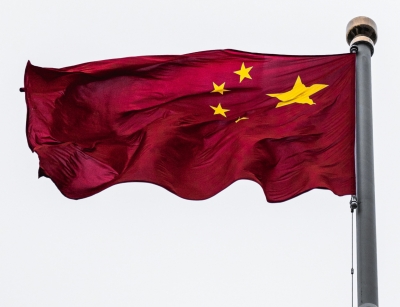New Delhi: China is happy to be seen as leading a global forum canvassing to assess the reach of future technological revolutions. A global exhibition on tech in Beijing was inaugurated in the last week of May, with President Xi Jinping said China is ready to “join hands with other countries to promote sci-tech innovation”.
The call still awaits a response from the West and it may take its time coming, considering both China and the US are currently locked in a new sanctions war over tech, with China taking the sanctions initiative this time.
The six-day meeting, which has a theme of “open cooperation for a shared future”, will focus on the “frontiers of science and technology development”, including artificial intelligence (AI), Beijing vice-mayor Yu Yingjie said last week.
As the forum is the first major international conference held in the Zhongguancun area — Beijing’s answer to the Silicon Valley — after the country’s Covid reopening, more than 40 per cent of the speakers will be foreign guests, according to Yu.
Xi said on the opening day: “As a new round of sci-tech revolution and industrial transformation continues to evolve, mankind needs international cooperation, openness and sharing more than ever in order to address common development problems.”
The forum’s 55 parallel sessions brought together experts and innovators to discuss a diverse range of topics in frontier realms, such as AI, life sciences and clean energy, as well as hot topics including data governance, women in scientific and technological innovation and digital sports.
This year’s forum highlighted its characteristics as a State-level, cutting-edge and international event.
Guests from over 80 countries and regions attended, and nearly 200 foreign government departments, international organisations, and institutions participated, including nearly 120 top experts helping out with keynote speeches, including 17 Nobel laureates. Among them, more than 40 per cent of the keynote speakers are foreign guests.
Turing Award winner John Hopcroft and Nobel laureate Ardem Patapoutian, are among the listed speakers, along with Baidu CEO Robin Li. Microsoft founder Bill Gates, attended as co-chair of the Bill & Melinda Gates Foundation, the private charitable foundation he founded with his former wife.
The Zhongguancun Forum, which has been held every year since 2007, is organised by eight government agencies and affiliates, including the Ministry of Science and Technology, the National Development and Reform Commission, the Ministry of Industry and Information Technology, and the Chinese Academy of Sciences.
The event has traditionally been a vehicle for Beijing to promote technology exchanges. In 2021, Chinese President Xi Jinping addressed the conference, saying that China would take a “more open attitude” and take part in “global innovation networks.”
However, increased tensions between Washington and Beijing over issues such as AI and semiconductor development have cast a shadow over the event.
The Biden administration is currently considering further restrictions on American investment in Chinese AI companies and other sensitive technologies, according to a Fox News report earlier this month.
In an action that only ignited tensions, Beijing declared that US chip maker Micron Technology failed a cybersecurity review, and banned the sale of its products to China’s critical information infrastructure operators. Micron Technology, the largest US memory chip maker, is assessing its losses following a partial ban of its products in China, as South Korean firms like Samsung Electronics and SK Hynix stand to benefit from its absence.
China’s move against Micron, seen as a retaliation against Washington’s tightened export controls of advanced US semiconductor technology, could shake up the memory chip supply chain in China and prove a boon for Korean chip makers.
The impact of the ban on Micron will depend on the details of Beijing’s restrictions, such as its definition of critical information infrastructure operators (CIIOs), which have been prohibited from buying the company’s products, said Micron’s chief financial officer, Mark Murphy, at a JPMorgan conference in Boston recently.
“We are currently estimating a range of impact in the low single-digit percentage of our company’s total revenue at the low end, and high single-digit percentage of total company revenue at the high end,” he said.
Beijing said products from the Boise, Idaho-based firm posed a “national security risk”, an allegation that the US commerce department said has “no basis in fact”. Micron has said it would maintain communications with Chinese authorities.
The Cyber Security Review Office under the Cyberspace Administration of China, which announced an investigation into Micron products in late March, did not disclose which products it reviewed or the methods it used to review them.
Micron will lose close to 10 per cent of its revenue if it loses customers in networking, server and cloud, and government-owned sectors that use its advanced memory chips, according to estimates by market intelligence provider TrendForce.
Mainland China and Hong Kong-headquartered customers represent about 16 per cent of Micron’s revenue, according to the Nasdaq-listed company’s filings. Indirect sales through distributors to China, along with direct sales, make up about a quarter of its total revenue, said Murphy.
The US government rebuked Beijing’s decision.
In a statement on Monday the US Commerce Department said the Micron decision and recent raids at American consultancy firms by Chinese authorities contradicted the country’s commitment to market opening and providing a transparent regulatory framework.
–IANS


Comments are closed.